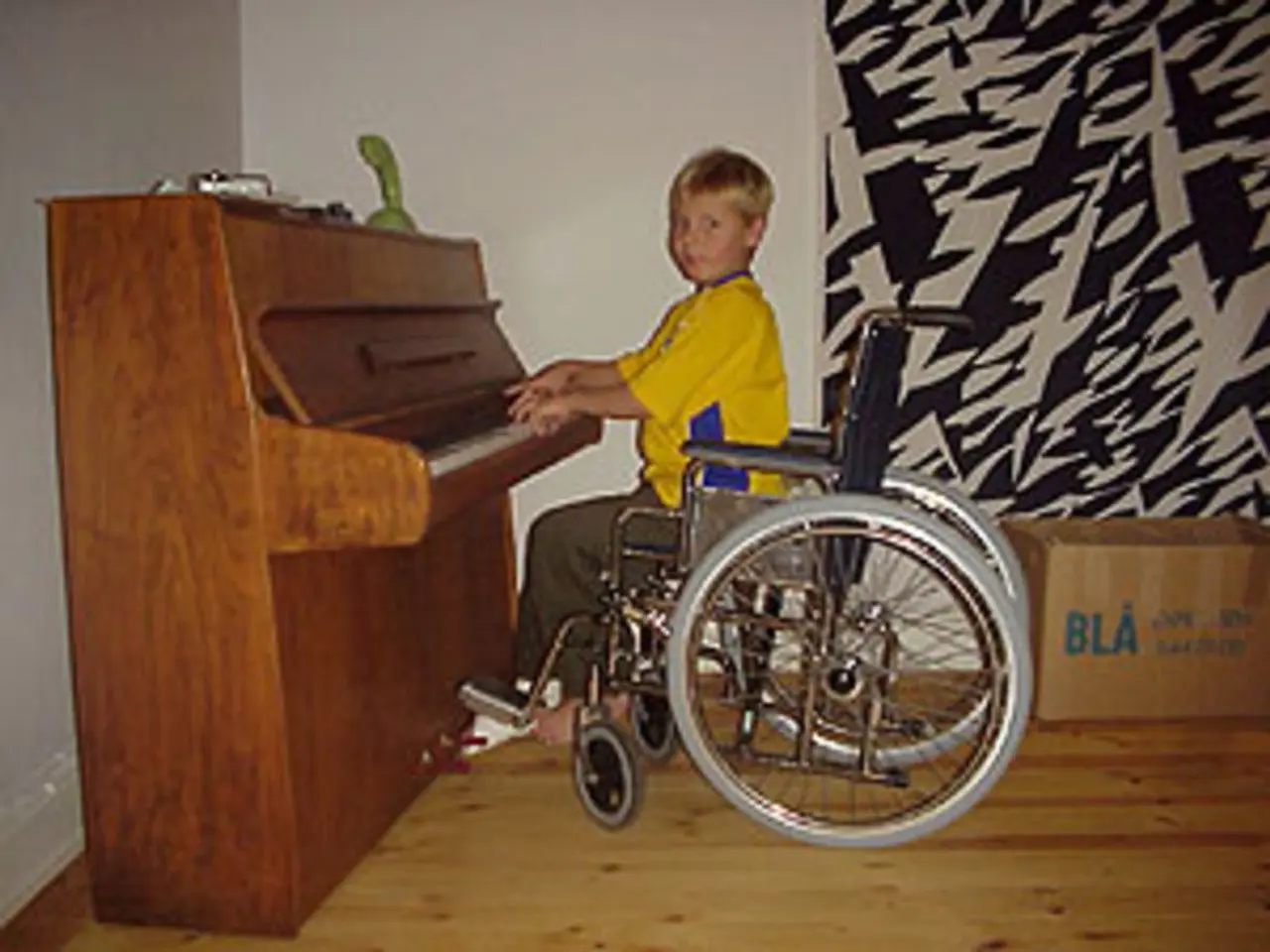Disability Related to Intelligence: Characteristics, Signs, Remedies, and Additional Information
In this article, we delve into the world of intellectual disability, a condition that affects the intellectual and adaptive functioning of individuals before the age of 18.
What is Intellectual Disability?
Intellectual disability, also known as cognitive disability, is a condition that causes significant limitations in intellectual functioning and adaptive behavior. People with intellectual disability tend to take longer to learn and develop intellectually than others and may struggle with adaptive behaviors.
Causes and Diagnosis
The precise cause of intellectual disability is often unknown, but it typically develops due to injury, disease, or certain brain conditions. Common causes include genetic conditions like Down syndrome, fetal alcohol syndrome, and phenylketonuria. Other causes include congenital anomalies or brain malformations, certain infections, exposure to toxins, and serious head injury.
To diagnose intellectual disability, a doctor will perform several tests to assess the person's intellectual and adaptive functioning. These tests may include assessing the person's language skills, motor skills, problem-solving abilities, memory, and more.
Beyond the well-known causes, rare genetic syndromes involving specific gene variants also contribute to intellectual disability. Examples include MEF2C deficiency, Pitt-Hopkins syndrome, CDKL5 deficiency disorder, and KBG syndrome.
Symptoms and Impact
Symptoms of intellectual disability can include reaching developmental milestones later than other children, difficulty speaking or reading, difficulty understanding social rules or cues, difficulty remembering things, difficulty with social skills, limited functioning in daily activities, reduced judgment and decision-making skills, difficulty learning from experience, communicating using nonverbal means, difficulty regulating emotions and behaviors, and more.
The severity of intellectual disability and any underlying genetic or medical conditions can affect how well someone is able to cope and function. However, with proper support and treatment, most people with intellectual disability are capable of achieving successful, productive roles in their communities.
Support and Treatment
Treatment plans for intellectual disability focus on the person's strengths, needs, support needed to function, additional conditions, and may include early interventions, special education, transition services, day programs, vocational programs, housing options, case managers, psychological or psychiatric services, speech and language pathology or audiology services, therapeutic recreation, rehabilitation counseling, adapted equipment or assistive technology, and family, caregiver, community support.
Parents and caregivers play a crucial role in supporting individuals with intellectual disability. Tips for parents and caregivers include learning about the child's intellectual disability, connecting with other parents, encouraging independence, seeking support, being patient, getting involved in social activities, avoiding negative thinking, working with early intervention services, contacting local school systems, practicing social and communication skills, recognizing the role of parents and caregivers in improving functioning, using clear demonstrations, breaking tasks into simpler steps, working with teachers and academic support workers, and working with adolescent or child psychiatrists to set appropriate expectations.
Prevalence
In the United States, intellectual disability affects around 1 in 10 families. According to the American Psychiatric Association, 1% of the population have intellectual disability, with around 85% having mild cases.
In conclusion, intellectual disability is a complex condition that affects many aspects of an individual's life. However, with early, ongoing interventions and supportive environments, individuals with intellectual disability can lead fulfilling, productive lives. If you suspect intellectual disability in a child, it is crucial to talk with their doctor or nurse as soon as possible and seek out local specialists for diagnosis.
- Science has made strides in understanding intellectual disability, classifying it as a condition that affects cognitive functioning and adaptive behavior.
- Such conditions, known as autoimmune disorders, often develop due to injury or certain brain conditions, but the precise cause is frequently unknown.
- Genetic conditions like Down syndrome, fetal alcohol syndrome, and phenylketonuria are common causes, as are congenital anomalies or brain malformations, infections, toxins, and serious head injuries.
- Rare genetic syndromes, such as MEF2C deficiency, Pitt-Hopkins syndrome, CDKL5 deficiency disorder, and KBG syndrome, also contribute to intellectual disability.
- Symptoms can range from reaching developmental milestones late, difficulty speaking or reading, struggling with social rules or cues, and reduced judgment and decision-making skills.
- While the severity varies, most people with intellectual disability can achieve productive roles in their communities with proper support and treatment.
- Treatment plans may include early interventions, special education, transition services, day programs, vocational programs, housing options, case managers, psychological or psychiatric services, speech and language pathology, audiology services, therapeutic recreation, rehabilitation counseling, adapted equipment or assistive technology, family, caregiver, and community support.
- Parents and caregivers are vital in supporting individuals with intellectual disability, learning about the condition, connecting with other parents, encouraging independence, seeking support, being patient, and being involved in social activities.
- In the US, intellectual disability affects around 1 in 10 families, with around 1% of the population having it, and 85% having mild cases.
- Education and self-development, including understanding the role of parents and caregivers in improving functioning, working with early intervention services, and contacting local school systems, are crucial for supporting children with intellectual disability.
- Personal growth and career development are essential for caregivers to provide effective support to individuals with intellectual disability.
- In the workplace, emphasis on workplace-wellness, including mental-health initiatives, can foster a supportive environment for those with intellectual disability.
- The world of health and wellness extends to various medical conditions and chronic diseases, including cancer, respiratory conditions, digestive health issues, eye health, hearing problems, and skin care.
- Skin conditions can develop in people with intellectual disability, necessitating proper care and treatment.
- Neurological disorders, such as HIV, epilepsy, and multiple sclerosis, also present challenges that require appropriate therapies and treatments.
- Therapies and treatments like CBD, used for anxiety, pain, and seizure management, may be beneficial for those with intellectual disability and other medical conditions.
- As people age, focus on cardiovascular health, womens-health, and mens-health becomes increasingly important, with Medicare providing coverage for treatment and care related to aging.




